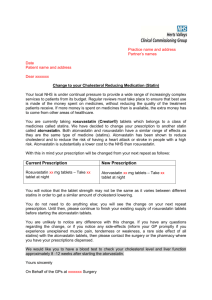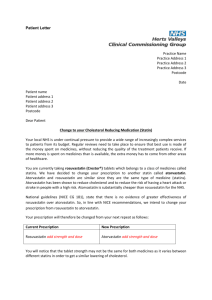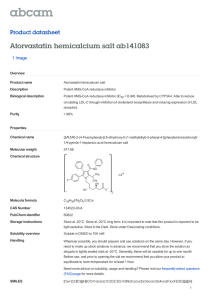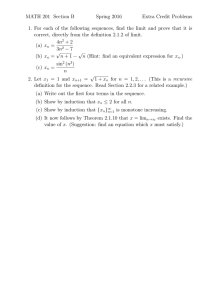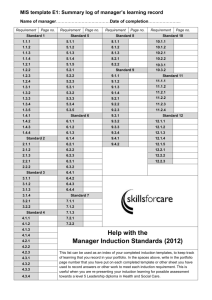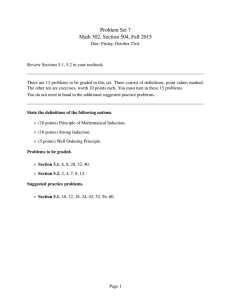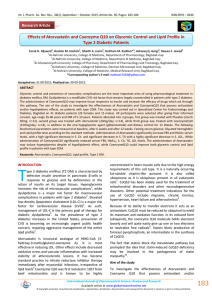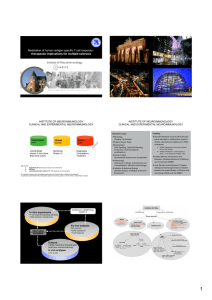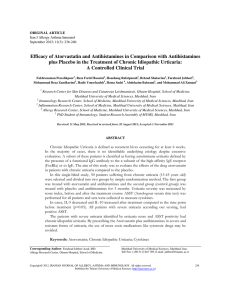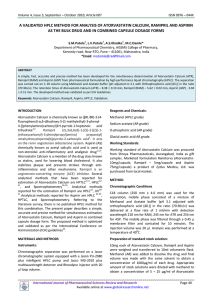UNIVERSITY OF MALTA
advertisement
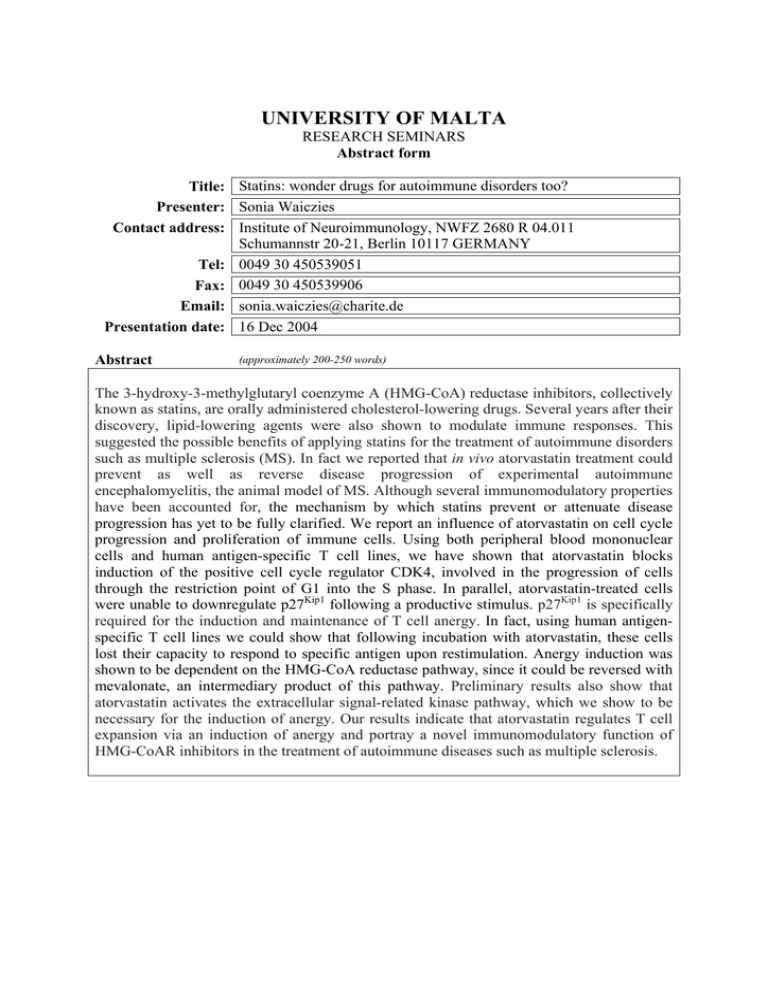
UNIVERSITY OF MALTA RESEARCH SEMINARS Abstract form Title: Statins: wonder drugs for autoimmune disorders too? Presenter: Sonia Waiczies Contact address: Institute of Neuroimmunology, NWFZ 2680 R 04.011 Schumannstr 20-21, Berlin 10117 GERMANY Tel: 0049 30 450539051 Fax: 0049 30 450539906 Email: sonia.waiczies@charite.de Presentation date: 16 Dec 2004 Abstract (approximately 200-250 words) The 3-hydroxy-3-methylglutaryl coenzyme A (HMG-CoA) reductase inhibitors, collectively known as statins, are orally administered cholesterol-lowering drugs. Several years after their discovery, lipid-lowering agents were also shown to modulate immune responses. This suggested the possible benefits of applying statins for the treatment of autoimmune disorders such as multiple sclerosis (MS). In fact we reported that in vivo atorvastatin treatment could prevent as well as reverse disease progression of experimental autoimmune encephalomyelitis, the animal model of MS. Although several immunomodulatory properties have been accounted for, the mechanism by which statins prevent or attenuate disease progression has yet to be fully clarified. We report an influence of atorvastatin on cell cycle progression and proliferation of immune cells. Using both peripheral blood mononuclear cells and human antigen-specific T cell lines, we have shown that atorvastatin blocks induction of the positive cell cycle regulator CDK4, involved in the progression of cells through the restriction point of G1 into the S phase. In parallel, atorvastatin-treated cells were unable to downregulate p27Kip1 following a productive stimulus. p27Kip1 is specifically required for the induction and maintenance of T cell anergy. In fact, using human antigenspecific T cell lines we could show that following incubation with atorvastatin, these cells lost their capacity to respond to specific antigen upon restimulation. Anergy induction was shown to be dependent on the HMG-CoA reductase pathway, since it could be reversed with mevalonate, an intermediary product of this pathway. Preliminary results also show that atorvastatin activates the extracellular signal-related kinase pathway, which we show to be necessary for the induction of anergy. Our results indicate that atorvastatin regulates T cell expansion via an induction of anergy and portray a novel immunomodulatory function of HMG-CoAR inhibitors in the treatment of autoimmune diseases such as multiple sclerosis.
